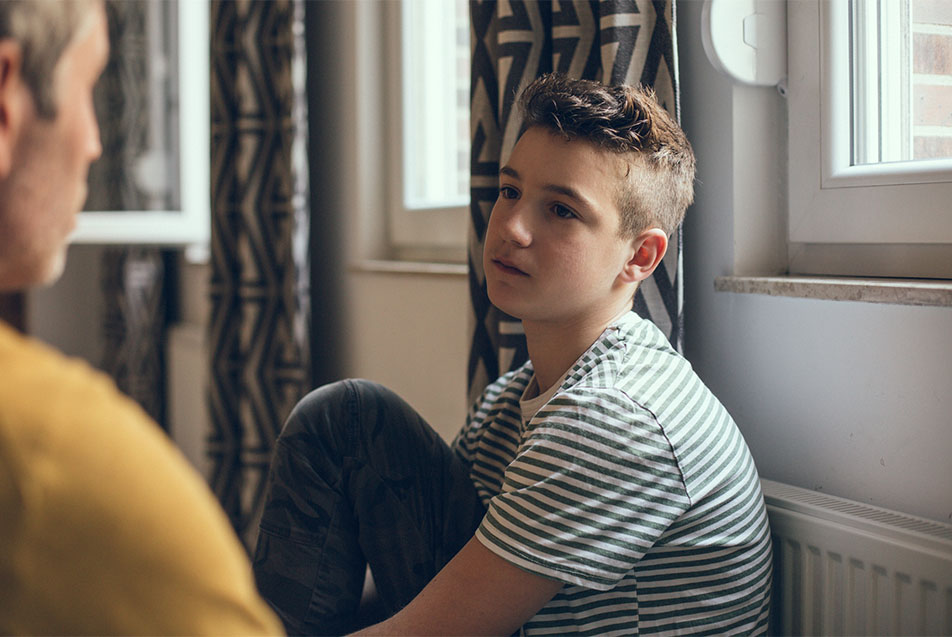
The pandemic has left the world’s teenagers more stressed and anxious than ever, challenging both their mental health and well-being. For help navigating these mental and emotional waters, we turned to Courtney L. Washington, PsyD, CSYAC, HSPP, clinical training director, Park Center, Parkview Behavioral Health Institute, for some much-needed advice and guidance for parents wanting to help.
What effect has the pandemic had on teens’ mental health?
The pandemic significantly impacted everyone’s mental health, causing increased levels of anxiety and nervousness. We all saw and/or experienced a lot of social isolation during this past year when stuck in our homes, unable to connect with each other, beyond a screen, on a basic human level. This separation can and did lead to higher levels of depression. Individuals could also experience the effects of trauma, which involves an increased hyper-vigilance and concern for people’s safety, simply because of how unsafe everyone has felt over the last 18 months.
What are some signs a teenager may be suffering from a mental disorder?
First, it’s important to keep in mind that psychiatric disorders look a bit different in children and teens than in adults. With that said, anytime you notice a general change in your child’s demeanor or functioning, outside of what’s typical for them, it’s critical that you pay attention to it.
For example, we often think of someone with depression as isolated, sad, withdrawn, tearful or crying. However, with teenagers, depression looks a bit different. Many adolescents’ depressive expressions can include aggression, acting out, talking back and defiance. You may even notice some children getting fixated or preoccupied with certain things like talking about the same thing over and over or worrying about germs and washing their hands. These could all be signs of anxiety disorders in teens and young adults.
It’s no secret that teenagers love to sleep, but when is it an indication of something more?
We sometimes see teenagers as defiant, lazy, or attribute their behaviors to their development, but that’s often not the case. Remember, any significant behavior change is usually an indication that something’s happening. Moreover, any shifts in their regulatory system like their sleep-wake cycles (oversleeping/unable to sleep) or changes in their food intake (overeating/under eating) is usually a symptom of something more. If parents or caregivers notice any of these, it’s vital that they check in with their teen and possibly follow up with a doctor or a mental health practitioner.
How can parents and caregivers go about addressing their concerns with their teen?
There are several different things parents and caregivers can do. Ideally, the first step they should take is to simply talk to their children – ask them questions and be sure to provide them with a safe space to share. In most cases, adolescents want to open up but often don’t feel heard in these situations. Usually, as adults, we think we have a plethora of worldly advice to offer, and sometimes we do, but that often overshadows what many teenagers might want or need to share.
I also think it’s developmentally crucial for children and teenagers to see their parents or caregivers struggle sometimes and be genuine about difficult things. Now, this doesn’t mean that parents and caregivers should rely on their children for emotional support because that’s not an appropriate boundary. However, it is acceptable for them to see you feeling sad or struggling while openly letting them know you are having a hard time. This helps illustrate how you deal and cope with challenging situations and that they are a natural part of life.
What other measures can parents take to help their teen navigate mental health challenges?
As previously mentioned, opening the lines of communication and having frequent conversations or check-ins about what’s happening in their life is the biggest step. It’s also important to be as honest and transparent as possible with them. If they’re not ready or willing to talk to you, try seeking additional professional assistance, or looping in another meaningful adult like a favorite grandparent, aunt or uncle. As long as they’re talking to someone, that’s what matters. Research shows that kids should have at least one meaningful adult relationship in their life to help keep them on a positive path.
Additionally, early intervention is key. Try to note any significant shift or change in your teenager’s behavior, then try to attend to it. In the meantime, exercise patience, compassion, and empathy because they’re going through some big transitions and understand that there will be adjustment periods. Remember, we often expect kids to respond in a specific way when we, as adults, aren’t even capable of doing so.
Finally, remember that children really do thrive on structure. It might seem like they don’t want or need it, but the more firm but flexible structure and boundaries you can put in place, the more successful you’ll be at helping them.




